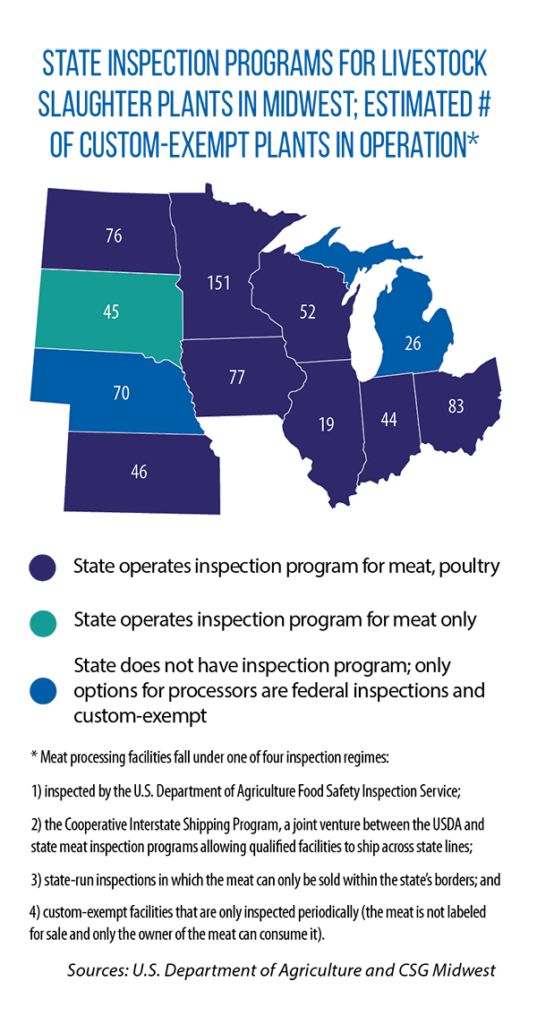On any given weekend in Nebraska, one can visit 100-plus farmers markets and purchase dozens of varieties of locally grown fruits and vegetables. Or stop by one of hundreds of roadside stands or dozens of you-pick operations. Nebraska grows a lot more than cattle and corn. But most of what Nebraska students eat doesn’t come from the state.
“Research in the last couple years shows that more than 90% (of food) is being imported from outside the state,” said Benjamin McShane-Jewell, an assistant extension educator with Rural Prosperity Nebraska.
However, with Legislative Bill 396, he and others are aiming to change that ratio. Introduced by Sen. Tom Brandt, the Adopt the Nebraska Farm-to-School Program Act reserves funds to create new and promote existing farm-to-school food programs. The bill passed unanimously in May with two goals in mind:
- Provide schoolchildren with fresh, non-processed meals and introduce them to healthy eating habits. This includes field trips to farms, cooking classes, and gardening and composting programs.
- Increase the income of Nebraska farmers.
“There’s $65-$70 million in food purchases made every year just for school programs,” McShane-Jewell said. “That’s a huge under-tapped market for local producers.”
Based in Washington County, McShane-Jewell has worked with the Regional Food Systems division of Rural Prosperity Nebraska for three years. Before that, he established urban agricultural projects, such as community gardens, around the country for 10 years, usually working on a small scale.
“It becomes really tricky when you think about a school district like Lincoln or Omaha, where you’re serving 25,000-50,000 students a day,” McShane-Jewell said. “That quantity becomes difficult to source.”
What a bill like LB396 provides, he said, is funding to organize and establish farm-to-school programs on a statewide scale, which requires extensive coordination.
Creating connections between producers and schools is at the heart of LB396. This is where Sara Smith comes in. As the farm-to-school specialist in the Nebraska Department of Education, Smith’s charge is to organize agriculture programs that connect schools with producers. One such statewide initiative, Nebraska Thursdays, encourages schools to serve locally sourced meals on the first Thursday of each month. Another program, Harvest of the Month, features a different Nebraska specialty crop each month and provides schools with the resources to serve those crops to their students.
“This is all an effort to guide schools toward products that can be grown in Nebraska with the hopes that we will see an increase in purchases from local growers,” Smith said.
“We’ve talked to a lot of buyers; they want to source locally. We’ve talked to local producers; they want to sell to schools,” McShane-Jewell said. “We’re just trying to bridge those gaps.”
One effort to bridge such gaps during the 2021-22 school year is an in-school gardening program. Schools build greenhouses on the grounds, and students are taught about agriculture. The food they produce goes directly to the school’s cafeteria. But students are only one side of the coin.
“In 2022, we’re going to hold trainings for producers across the state,” McShane-Jewell said. “Hopefully that will help them be more confident to reach out to schools and work with them to start producing what (the schools) need.”
While each school’s student body and resources differ, both McShane-Jewell and Smith have high hopes for the future.
“As they say, ‘If you want to reach the top of the trees, you shoot for the moon,’ so I’m a big proponent that we need to go really big on this,” McShane-Jewell said. “There are models out there that set targets for 10% or 15% local. I would love to see Nebraska get really ambitious and think about 50%, 75%, 100% local.
“There’s so much production happening in this state. It’s just: How do we turn the tides toward a different marketplace?”
One immediate step is the Mountain Plains Crunch Off, an eight-state competition celebrating October as National Farm to School Month. Who can encourage the most residents to “crunch” into a piece of fresh produce?
“Nebraska is the reigning champion two years running,” McShane-Jewell said, “so we’re keen to keep that going.”
For more information on the Mountain Plains Crunch Off, click here. For more information on Rural Prosperity Nebraska, click here.


